Mother Of Protesting Student Arrested In Iran’s Shahinshahr

The IRGC's intelligence agents have arrested the mother of a student who was detained and tortured during a protest rally against chemical attacks on schools.

The IRGC's intelligence agents have arrested the mother of a student who was detained and tortured during a protest rally against chemical attacks on schools.
An informed source told Iran International that the IRGC intelligence forces on Monday raided the house of Bita Shafiei Rad in Esfahan (Isfahan) to arrest her without a warrant, but as she was not home, they arrested her mother Maryam Abbasi Nikou.
Eight IRGC officers were involved, including two women who damaged goods in the home and confiscated the father's cell phone.
Abbasi Nikou, 42, has not contacted her family since her arrest, and the family is unaware of her condition and whereabouts.
Bita Shafiei Rad was arrested and temporarily released during a student gathering in April to protest chemical attacks on schools.
In the video message she published after her release, Bita said she is "seeking Iran's freedom".
"If you won’t be the voice of those who are in prison, they can do whatever they want. We should not be afraid of them, because our fear gives them strength," she added.
In mid-April, riot police in Shahinshar, central Iran, attacked a large crowd of people with tear gas and shotguns who were protesting ongoing gas attacks on schoolgirls.
Parents and students who gathered spontaneously outside the education department of Shahin-Shahr chanted anti-government slogans like “We don’t want a child-killing government.”
Chemical attacks on schools and poisoning of thousands of students in Iran continued for more than five months.
During this period, the Islamic Republic never accepted any responsibility for the attack claiming "collective fear" was the cause of the students’ sickness.

As part of efforts to put pressure on Iran’s outspoken Sunni leader Mowlavi Abdolhamid, the government has arrested several people from his inner circle.
According to local sources close to the prominent Sunni cleric, among those arrested is Abdol-Nasir Shahbakhsh, his grandson whom security agents arrested "violently" on the street and took him to an unknown location.
Shahbaksh works for the Makki Mosque, where Abdolhamid delivers his speeches. He was recently summoned by interrogated by the intelligence ministry in Zahedan, a Baluch-majority city and capital of southeastern Sistan-Baluchistan province.
The Makki mosque in Zahedan has been a center of resistance to the government since popular protests began in September 2022. This is where Abdolhamid delivers his weekly sermons, openly criticizing the regime headed by Supreme Leader Ali Khamenei.
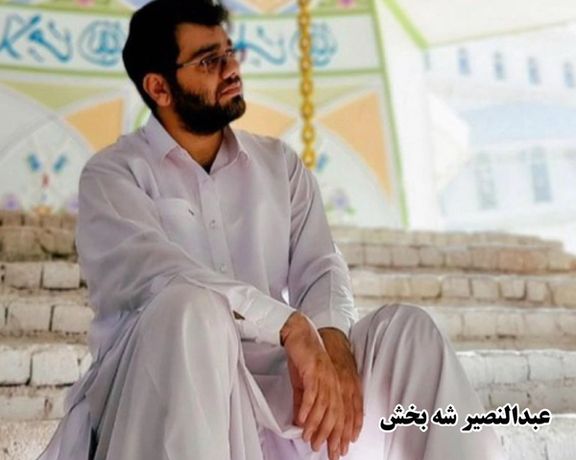
Haalvsh website, which covers developments in Sistan-Baluchestan, said that two other people who were arrested on Tuesday were cameramen of the mosque, identifying them as Osameh Shahbakhsh and Hamed Mohammadi-Nik.
Security agents also raided Osameh Shahbakhsh’s home, assaulted members of his family and confiscated his electronic devices.
On Saturday, June 24, a member of the mosque’s security personnel, Abdolvahed Shahlibar, was also summoned by the judiciary and was arrested afterwards.
Shir-Ahmad Shirani, the chief editor of Haalvsh, told Radio Farda that the arrests seem to be the regime’s reactions to the news of a botched assassination attempt against Abdolhamid. He added that several other people have been called in by the authorities or arrested over the publication of the report.
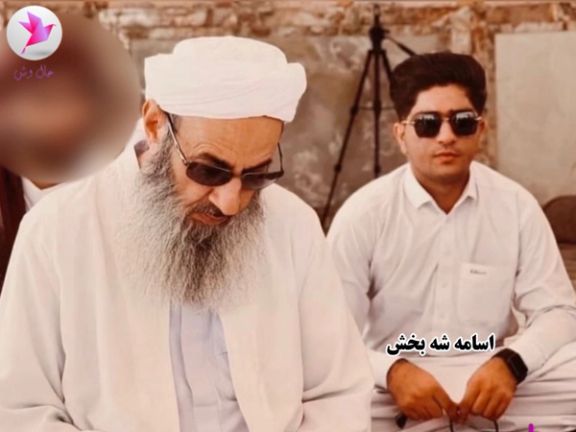
The arrests came a few days after reports surfaced that the Revolutionary Guard’s intelligence arm had assigned a hitman to poison and kill the vocal Sunni cleric of Zahedan. The security guards at Makki Mosque arrested a man pretending to be a religious student who allegedly wanted to assassinate the Sunni leader.
According to the report, the suspect admitted that he received a salary of 150 million rials ($300) per week since the beginning of his operation.
Officially known as Sheikh Abdolhamdid Esmailzehi, the Sunni cleric is widely popular because of his willingness to challenge Khamenei’s absolute authority. In addition, the country's Sunni minority are heavily persecuted and the cleric has long been an advocate of minority rights, to the ire of the regime.
The prominent religious leader has been relentless, making fiery speeches against the heavy crackdown and killing of protesters, and calling government actions "felony".
In November, the outspoken Sunni Imam said women, ethnic and religious groups, and minorities have faced discrimination after the establishment of the Islamic Republic in 1979. He also called for an internationally monitored referendum in Iran, arguing that by killing and repression the government cannot push back a nation.
Abdolhamid also said earlier that officials should not be clerics, noting that not all Iranian people are "religious" and as such do not accept religious authority.
Last Friday, June 23, was the 38th consecutive week that people of the province held demonstrations against the government following the death in custody of Mahsa Amini in September, but the rallies were significantly larger following calls for protests by Sunni clerics and activist groups as the regime seems to have intensified its campaign against their religious leader Mowlavi Abdolhamid.
On Sunday, local media revealed the identities of at least 14 Baluch citizens arrested by the security forces, including four children.
Earlier in the month, the office of the outspoken Sunni leader of Sistan and Baluchestan province said the Ministry of Intelligence prevented him from attending Hajj pilgrimage.

In a rare public criticism, Iran’s Supreme Leader has admitted that the nation has lost trust in the judiciary, blaming it on malpractice and media representation.
“There is a small minority who abuse their position and tarnish the image of the judiciary in the eyes of the people,” Khamenei said in a revealing meeting with judiciary officials Tuesday.
He called on authorities to fight corruption within the judicial system and warned that "corruption is contagious". He said: "When corruption enters a system, this disease spreads. It is increasing day by day."
Khamenei said the media is partially to blame, tarnishing the judiciary's reputation further, refusing to acknowledge the heavy-handed and brutal punishments it has been handing down to civilians since the protests began in September in the wake of Mahsa Amini's death in morality police custody.
Khamenei's words contradict the fact that he controls the religious judiciary that is only accountable to him and plays the role of both prosecutor and judge. The courts in Iran are not independent, but part of the large bureaucracy known as the Judiciary, whose head is appointed by the Supreme Leader,
As “one of the main pillars in the establishment of the Islamic republic,” he said instability in the judiciary can lead to disruptions in the entire regime as he urged his inner circle to tighten up the flailing system.
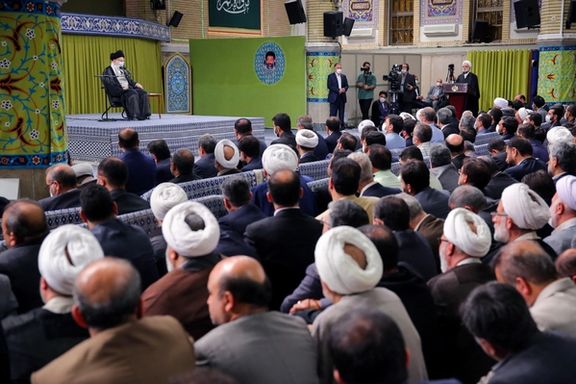
Political pundit Rouhollah Rahimpour told Iran International that the main duty of the judiciary has become defending the regime against the people and cracking down any voice of dissent.
He called the distrust of the judiciary a natural consequence "when the judicial system does not pursue justice" and only works as a tool in the hands of the regime to stifle criticism and quash protests.
The regime used overwhelming force with military weapons in its crackdown on the protests since September, killing more than 500 civilians and arresting tens of thousands more. Hundreds of other protestors suffered hospitalization and permanent injuries, including the loss of eyes when shotgun pellets were fired at the faces of demonstrators.
After the wave of nationwide protests which has still yet to subside, the Iranian regime has embarked on a wave of executions which has seen dozens of prisoners hanged this year.
Iran's Chief Justice Gholamhossein Mohseni Ejei claimed Monday that scores of Iranians only took part in protests due to foreign influence, undermining the strength of the Woman, Life, Freedom movement which has seen hundreds of thousands of Iranians calling for the end of the brutal dictatorship.
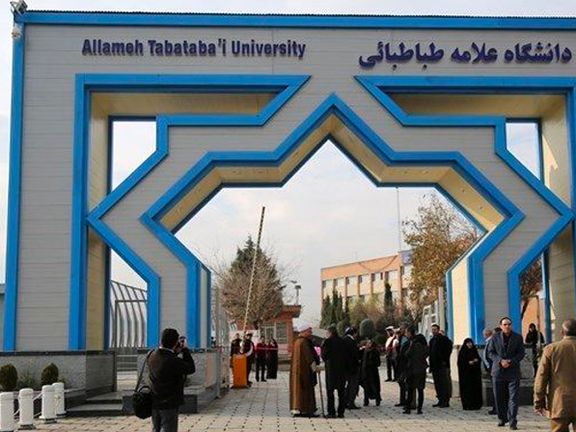
Security forces have disrupted end-of-semester exams, invasively searching students and threatening women who did not wear headscarves strictly in Tehran.
The Student Union Council of Iran said on its Telegram channel that the university's security officers "repeatedly disrupted order" by taking photos of students and enforcing strict hijab rules.
A warning was also issued saying that their answer sheets would be withheld if they failed to comply, the report added.
Metal detectors were used by security forces to search both male and female students and those with metallic objects, including belts, were not allowed to enter exam rooms.
In recent months, security and intelligence organisations have increased pressure on students for hijab amidst a nationwide hijab rebellion in universities across the country, leading to the suspension of possibly hundreds of students.
Last week, students across the country and various social and political groups expressed solidarity with the students at University of Art in Tehran who have been staging protests against stricter hijab.
University of Art students have been protesting new rules that require women to wear a pullover headscarf with stitched front (called Maghna’e in Iran) which is like a nun’s coif, completely covering the head and the neck. Failing to comply, the university has said, would result in suspension.
Anti-hijab and anti-regime protests erupted in Iran in September after Mahsa Amini, a young woman arrested in the street by the notorious ‘morality police’ and received fatal head injuries during her detention, died in hospital.
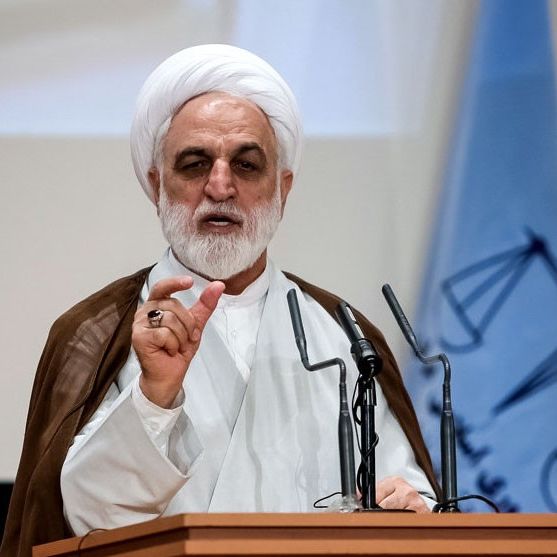
Iran's Chief Justice claims the case of those who were 'deceived' to take part in recent anti-government protests has been closed.
Alleging that scores of Iranians only took part in protests due to foreign influence, undermining the strength of the Woman, Life, Freedom movement which has seen hundreds of thousands of Iranians calling for the end of the brutal dictatorship, Gholamhossein Mohseni Ejei said: “Due to last year's riots, which were planned by the enemies [the US, Israel and Western allies], the number of cases received by the Judiciary increased by more than 4 percent."
He said judges handled more than 20,000 "riot cases", a term the regime uses to describe the nationwide anti-government protests. It is unknown if those released had been forced to confess to foreign influence, a tool commonly used by the regime to negotiate with prisoners and quash dissent.
After a wave of nationwide anti-government protests last year which has still yet to subside, the Iranian regime has embarked on a wave of executions which has seen dozens of prisoners hanged this year.
The regime used overwhelming force with military weapons in its crackdown on the protests, killing more than 500 civilians. Hundreds of other protestors suffered permanent injuries, including the loss of eyes when shotgun pellets were fired at the faces of demonstrators. More than 20,000 people were arrested.
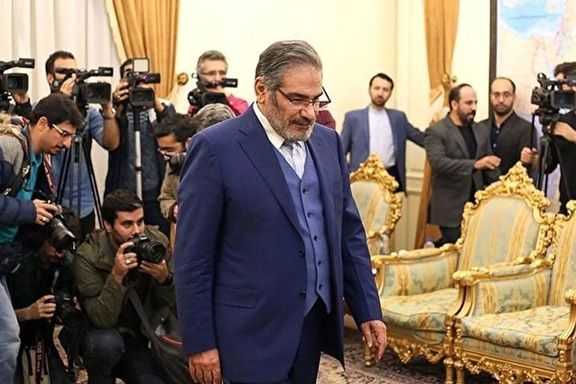
Iran’s former security chief had warned Supreme Leader Ali Khamenei of a UN fact-finding mission on human rights violations in 2022, a leaked document reveals.
According to a confidential letter leaked by the hacktivist group ‘Uprising till Overthrow' on Sunday, Ali Shamkhani wrote that investigations over human rights violations during the crackdown on protests since September 2022 could even lead to revelations about other older incidents in Iran, such as the mass executions in the 1980s.
In the letter, Shamkhani said that such a mission had only been formed for countries struggling with crises and civil unrest such as Syria, Libya and Sudan, noting that the creation of this mission has a connotation that Iran is also struggling with serious problems.
Despite Shamkhani’s list of suggestions to prevent the initiative at the UN, the fact-finding mission was finally launched.
In its resolution S35/1, "on the deteriorating situation of human rights in the Islamic Republic of Iran, especially with respect to women and children," adopted in November 2022, the Human Rights Council decided to establish an independent international fact-finding mission.
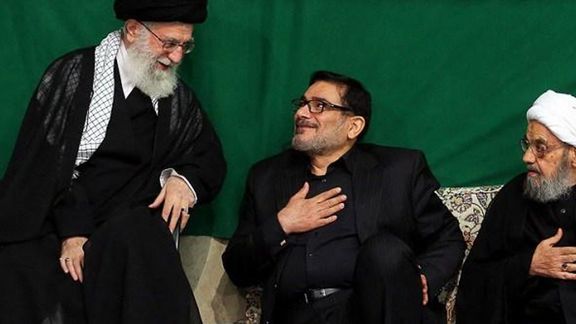
The mandate of the mission was to thoroughly and independently investigate human rights violations in Iran related to the protests that began in September 2022, after a 22-year-old woman was killed in police custody. The mission was also mandated to engage with all relevant stakeholders, including the Office of the United Nations High Commissioner for Human Rights, and the Special Rapporteur on the situation of human rights in Iran, as well as relevant United Nations entities.
Shamkhani, in his letter, suggested that Iran should invite Special Rapporteur on the Rights to Freedom of Peaceful Assembly and of Association, Clément Nyaletsossi.
Shamkhani said that a visit by the rapporteur may lead to negative reports but also positive ones as the regime could argue that “thousands” of rallies were held without any clashes.
The leaked documents do not provide an insight on what the response was from Khamenei's office.
In recent months there were rumors about Shamkhani stepping aside as hardliners blamed him for failure to suppress the protests. In video-taped remarks released on the internet in November, former lawmaker Hamid Rasaei, a hardliner cleric, accused him of failing to quash protests.
The conjecture was further confirmed after the hacktivist group hacked into 120 servers at the presidential office, getting access to internal communications, minutes of meetings, President Ebrahims Raisi’s online conference platforms and about 1,300 computers inside the office.
Among the released documents, there is correspondence between the president’s office and the office of Shamkhani, confirming rumors that he stepped down over conflicts with the Raisi administration.
In one letter addressed to Shamkhani, the president's chief of staff, Gholam-Hossein Esmaili, criticized the security chief for a lack of insight into the protests. With a condescending tone, Esmaili rebuked Shamkhani’s office for “merely describing and analyzing the events,” asking him to provide “meta-analyses and predictions” about the developments regarding the protests.